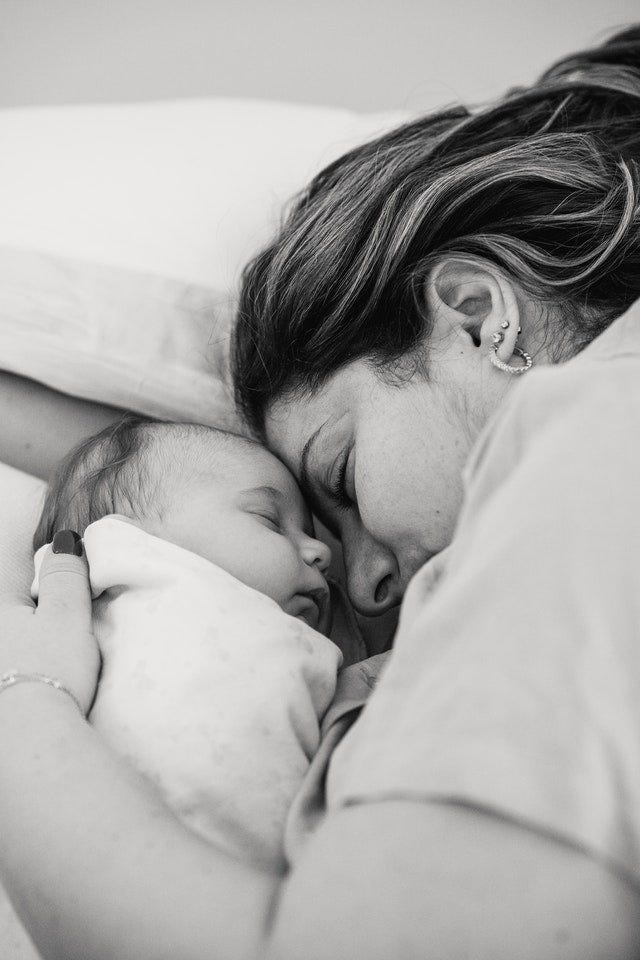Monday is Valentine’s Day and the explosion of media around the holiday has me thinking about love. I’m going to write specifically about romantic love for Monday’s newsletter that will go out to everyone, but today I thought I’d write about love in a wider sense. As in, the love that carries across friendships, families, partnerships, and communities.

English is the least useful language for a nuanced discussion of love since we really only have a single word, which we sub in for all types of emotional connections and intimacies. Sanskrit, in contrast, has 96 words for love. 96! Sadly, I don’t write or speak Sanskrit, nor do you probably, so we’re just stuck with this one word-bucket for all the complicated things.
All the complicated things that get tossed into the love word-bucket share one essential aspect– a deep yearning to witness the most ideal parts of someone and elevate them, and to have our most ideal selves witnessed and elevated in turn. We want to connect our Light to another person’s Light, helping them both to grow.
What a gorgeous intention, which underlies all the many mundane ways in which we show up daily for the people we love. And when our intention and experience line up, what an incredible experience it is! I’m lucky to have a handful of these deep, lasting loves in my life. They have been a safe harbor and an endless source of delight since my early teens. I would not be the person I am without them.
Not all loves are so sustainable, however, and here are the main reasons why: we overemphasize people’s Light in our estimation of them, ignoring all the other very real parts of who they are and ways in which they move through the world. Or, coming from the other direction, we work to convince those we love to overlook our destructive tendencies as proof of their love for us.
Why we do this is due in large part to how we conceive of love. That conception is conveyed through how we language, or qualify, the quality of “real” love.

Linguistically, to make up for English’s sad lack of distinct vocabulary for the many types of connections that get thrown in the love word-bucket, we insert qualifiers in front of the word love. Some qualifiers indicate the type of love relationship we’re discussing (romantic love, familial love, etc.). Other qualifiers are used to talk about the quality of love, and there’s one that’s treacherous— unconditional love. Unconditional love is held up as the only true expression of feeling between two people. If there are any limits or expectations then it can’t truly be love, right? It’s just some sort of attachment parading as love.
Unconditional love absolutely exists. It’s the love (hopefully) of a mother for a baby, and if you have ever raised an infant you know this is true. Without the benefit of unconditional love, no one would survive the lack of sleep, the shit leaking out of diapers on everything, the projectile vomit, or the nipple biting. We are wired as humans to love our children despite the actual pain and trouble of raising babies, and it is as beautiful as it is functional for our survival as a species.
Why do I say “mother” and not “parent”? It is not to devalue the love of fathers for their children. But psychologically and emotionally, our attachment to our mother figure is different. It’s our original love imprint– primal and potent.1
How can we not yearn for the sort of all-encompassing, boundless love with another human that we (hopefully) experienced with our mother? Surely it will erase the harsh reality of living as a separate individual who will eventually die. If we can love and be loved like that maybe we can chase away that lurking sense of loneliness that waits for us in times of fear, grief, sadness, and isolation.
If you’re of a spiritual nature you can, with practice, find that boundless love through your relationship with the Divine. The Infinite can contain your boundlessness. For most of us, however, the only unconditional love we can experience after that boundless love we hopefully felt with our mother is through the love we feel for ourselves. No matter what we do or where we go we’re always there, so developing an unconditionally loving relationship with ourselves is time and energy well-spent.
But the love between all other people, whether children or adults, is a different, albeit related, animal. The power dynamics are different, for one. Babies are helpless creatures. They need unconditional love in order to survive, and it is our job as parents to offer it— to sacrifice our comfort, our bodies, and occasionally our sanity, in order to assure that survival. However, expectations of behavior and self-responsibility, which even out the power dynamic, are indispensable ingredients of love between all other people.
The idea that if love isn’t unconditional it isn’t really love ignores the actual complexities of people. Yes, everyone carries a brilliant, precious Light inside of them. But that Light may not actively control their behavior. They may not be able to express it constructively. This doesn’t make them unworthy of love, but it does make them potentially incapable of reciprocating love, and no amount of sacrifice offered under the guise of refusing to put conditions on love is going to change that.
The only thing that changes anyone’s capacity to reciprocate love is a deep commitment by that person to better love themselves. Love, when only experienced from the outside, does not conquer all. It can’t.

Perhaps it’s easier to delineate it this way: who we can love and who we can actually maintain a healthy relationship with are sometimes different. There are always conditions to the love we experience with people we allow close enough to us to affect our daily existence. At a minimum, in our love relationships there should be no physical or emotional violence, dehumanization, abuse, manipulation, or betrayal. This is not to say that people who love each other can’t be remarkably shitty to each other occasionally, but ongoing patterns of violence, humiliation, abuse, manipulation, betrayal, or dishonesty are not part of healthy relationships.
If we tell ourselves our love for someone is unconditional then we simply haven’t yet been confronted with one of our conditions. Or our lack of love for ourselves is preventing us from maintaining boundaries around being treated in ways that are not loving.
Can we continue to love someone who is not capable of reciprocating that love? Sometimes we can. We just may have to love them at a greater distance than we might wish.
There is a reflexive tendency in love to amplify our love object’s qualities that express their Light and to de-emphasize those qualities that are less constructive or life-affirming. But de-emphasizing them in our own minds and hearts doesn’t make them disappear. If we are to love with integrity we have to acknowledge the whole person that someone is, and then respond in the most loving way possible to all that they are. Sometimes that means setting boundaries around how they express their emotions to us. Sometimes it means sticking with them as they wrestle, honestly and openly, with their emotional patterns. And sometimes it means releasing them to go live out the least loving parts of themselves far away from us.
Boundaries are conditions. They are the baseline expectations we have about what treatment we allow by those that profess to love us, and what we will offer in return. Having boundaries doesn’t indicate a lack of love. Instead, having boundaries indicates the presence of that precious and necessary balance in relationships between the love of others and the love of self.
I hope all of you will spend some time in the coming days reflecting on what your conditions are for healthy relationships. Have you ever loved someone you couldn’t maintain a loving relationship with? How did your integrity practice come into play?
I realize this is very gendered language and I’m struggling with how to discuss it in a more inclusive way. The reality is that, though everyone was birthed by a person with female reproductive organs, not all of those people identify as women, or as mothers. And then there are families with two dads. Yet, there is still a person that births that child and we have a connection to them, a deep, primal imprint. I welcome any feedback about how to name that relationship in the context of this discussion.





This is a great column! I love how much boundaries are centered here as absolutely essential to all love relationships. They are overlooked so much, but they have absolutely enabled me to have the love lives that I want.